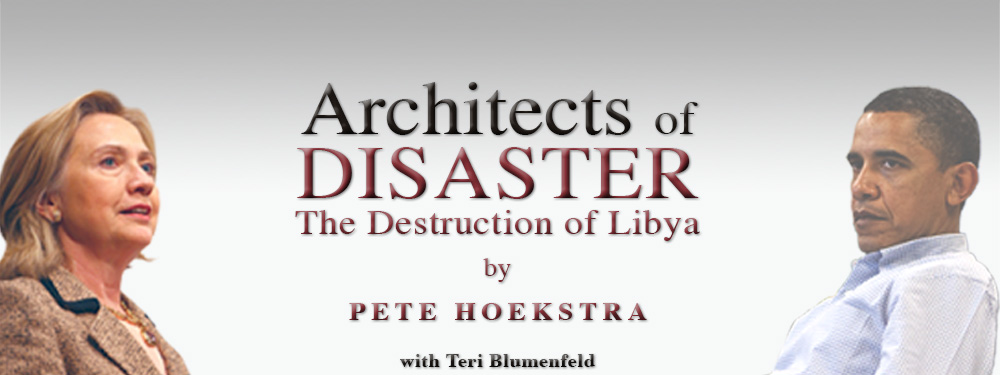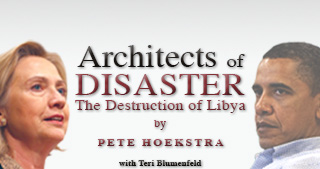The catastrophic disaster in Libya will define President Barack Obama’s war legacy much as Iraq defines President George W. Bush’s.
Most if not all of the 2016 Republican candidates faced the question of whether they would have supported the 2003 U.S. campaign to remove dictator Saddam Hussein from power.
So it is fair that the Democratic candidates face a similar foreign policy question as it relates to interactions with jihadists and removing dictator Moammar Gadhafi from power during the 2011 Libyan intervention.
The following five questions should be asked of all of the Democratic candidates as the campaign moves forward.
Obama and then-Secretary of State Hillary Clinton reversed decades of bipartisan strategy concerning radical Islamists in which Republican and Democratic leaders regarded them as enemies and treated them as such.
Obama famously invited leaders from the Muslim Brotherhood to sit in the front row of his 2009 speech to the Muslim world in Cairo, and then stood by while they overthrew the relatively stable government of Hosni Mubarak in Egypt, a long-term ally of the United States.
His administration negotiated a nuclear weapons agreement with the mullahs in charge of Iran, an unrepentant global state sponsor of terror and the facilitator.
Obama and Clinton provided weapons and training to jihadist veterans of Iraq and Afghanistan, which included radicals who deposed and murdered Gadhafi. Libya is now an exporter of terrorism throughout North Africa and the Middle East. It sowed the seeds of the Islamic State in Syria and Iraq that is now inflicting barbaric genocide against Christians and inflaming the humanitarian crisis in Europe.
1. Will you continue to support blanket outreach to Islamist radicals?
A report recently surfaced that indicates Clinton blocked peace talks with Saif Gadhafi, the son of Moammar, a man who became a reliable ally in the war against Islamist extremists in the years after 9/11. The Obama administration later went to great lengths to negotiate the nuclear weapons deal with the nihilistic Islamic Republican of Iran — including immediately lifting more than $100 billion in sanctions — with nothing in return.
2. What qualifications, if any, will you apply to those with whom you will or will not negotiate?
President Bush sought and received congressional authorization for the use of force in Afghanistan and Iraq. Obama did not seek congressional authorizations for intervening in Libya, nor did Congress sanction his launching air strikes in Syria.
3. Will you feel compelled to seek legislative approval prior to engaging in warfare? What standards will you apply?
Significant weapons caches — Gadhafi’s leftover stockpiles, NATO-supplied arms and those shipped in from the UAE and Qatar — remained in Libya after NATO and the U.S. abruptly left. Those weapons are now finding their way into the wrong hands throughout the region, most notably in Syria.
4. Would your administration be more transparent with voters concerning its role in the flow of weapons throughout the Middle East and North Africa?
It seems that during the Obama administration America did not apply the lessons learned in Iraq and Afghanistan. We also dismissed almost every lesson we should have learned in developing policy towards Egypt, Syria, Iran and Libya.
5. What is the most important lesson learned from the foreign policy implemented under Obama’s leadership?
At least one lesson has already become clear. Foreign policy is hard work, and it is best accomplished without identifying party affiliation.
Whether or not they warrant the level of criticism that they have both received, presidents Bush and Obama provided solid examples for how not to conduct foreign policy in certain areas of the world. We now need the presidential candidates of both parties to explain how they would approach world affairs in their own right.
These are valid and necessary questions to which American voters deserve answers before electing the next leader of the free world.
Pete Hoekstra is the former chairman of the House Intelligence Committee and currently the Shillman Senior Fellow with the Investigative Project on Terrorism. He is the author of “Architects of Disaster: The Destruction of Libya.”


